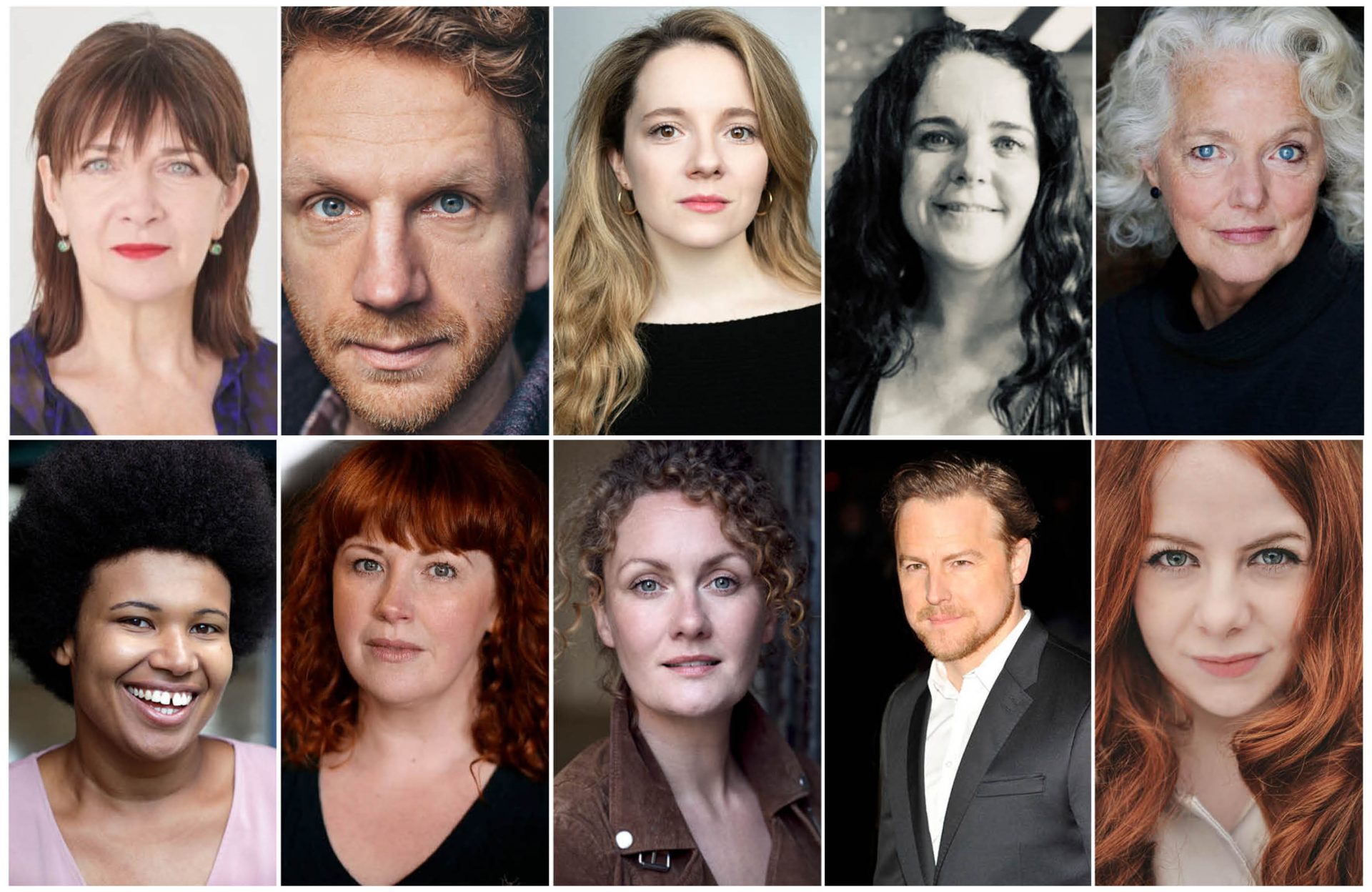After a 13-year break, John Byrne returns to the stage with Tennis Elbow, the second instalment in the Lyceum and Pitlochry Festival Theatre’s Sound Stage series. Filled with a colourful collection of characters, Byrne’s audio play is a boisterous romp through the life and times of a prolific but under-appreciated artist, Pamela Crichton-Capers.
A writer of lavish, sometimes lurid fiction, we first meet Pamela as a pupil at Our Lady of Perpetual Succour High School For Girls, scribbling a letter to her stepsister in the laundry cupboard. We follow her doomed studies at an Oxford college before she embarks on a string of exotic adventures – culminating in an impecunious existence in an air-raid hut on the west coast of Scotland.
The cast is brimming with Scotland’s finest actors. Maureen Beattie is as much of a delight as ever, doubling as both the enthusiastic presenter of the retrospective on Pamela’s life that serves as the vehicle for the story-telling, and the high school’s haughty Mother Scholastica. Brian Ferguson delivers Byrne’s playfully bombastic script with assured relish, and Kirsty Stewart does a great job of taking Pamela from her teenage years to her impoverished end with vivacious élan.
Though the story is engaging enough to hold your interest for the 85-minute running time, the narrative struggles without a clear plot propelling the action forward. Tennis Elbow is an autobiography strung together from a series of amusing skits, lacking an inciting incident to kick things off. As an audio-only piece, it’s also sometimes tricky to distinguish characters and how they’re connected. It’s possibly more satisfying as a story to those familiar with Byrne’s 1977 debut play, Writer’s Cramp, which sketched out the story of Pamela’s one-time husband, Francis. Regardless though, you get the sense that Byrne had a ball writing this piece as the script drips with extravagant alliteration, an abundance of “jolly olds”, “dizzy blighters”, and “absolute cobblers”, and segways into Scots vernacular that the cast gobble with greedy gusto.
Production-wise, the sound design is as spiffing as you’d expect. Sound designer Alisdair McGregor and recordist Louis Blatherwick do a great job recreating the convent school, dreaming spires, a brief stint in prison and the shuffling, coughing, smirking attendants at a public event. All are ably recreated as a wraparound soundscape.
In this script, Byrne pokes potentially cathartic fun at the vagaries of the art world (note one of Pamela’s masterpieces, presented on a billiard cue). It’s low on suspense but silly, snappy and forms a funny, frothy, eloquent feast for your ears.
